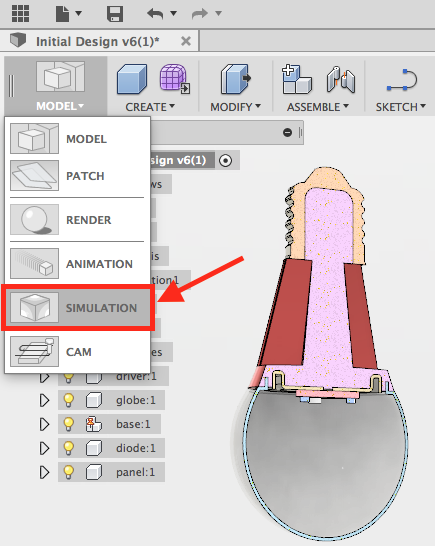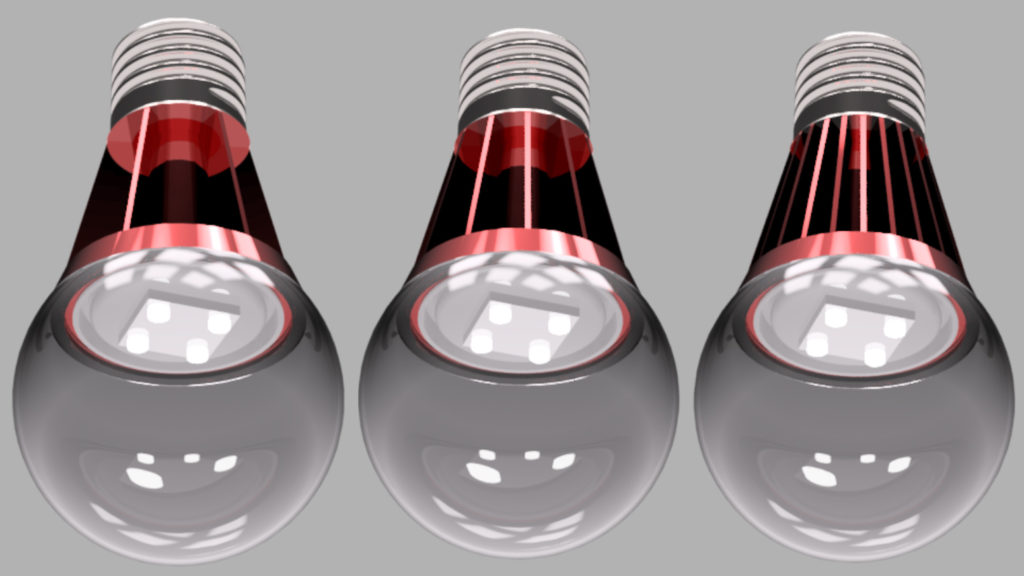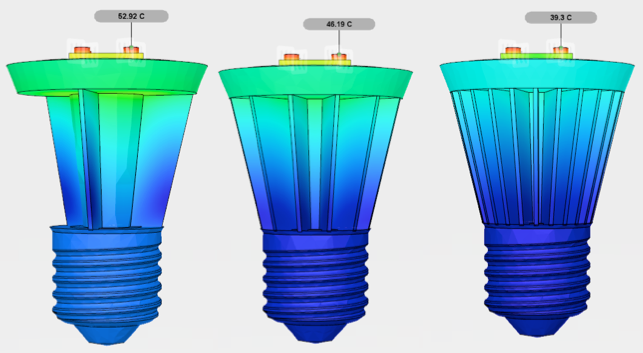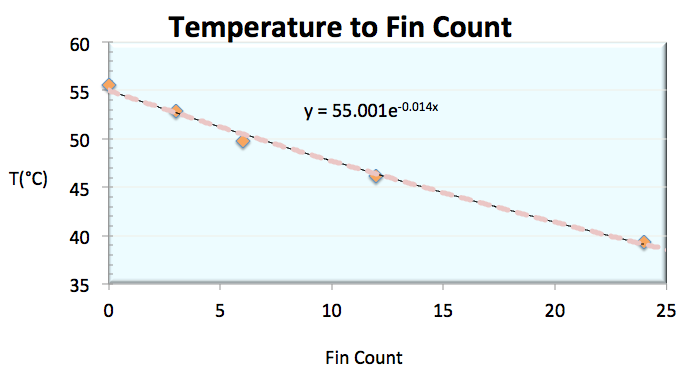Elevate your design and manufacturing processes with Autodesk Fusion
In honor of Earth Day, I wanted to show you how Fusion 360 can solve problems related to one of the largest electricity users by percent: residential and commercial lighting.
I was surprised to learn that 11% of all electricity consumed in the US is related to lighting. For residential consumption, this is second only to cooling, and exceeds water and space heating. In this US alone, lighting consumes about 412 billion kilowatthours of electricity, so small efficiency gains can have huge (and lasting) effects.
That’s why incandescent bulbs have been swapped out by compact fluorescents (CFL’s), and those are now being swapped out by LED’s. The reason for this is not only that LED’s are more efficient than CFL’s, but they have other advantages:
- they don’t require a warm up.
- life expectancy is longer.
- and possibly most importantly, they don’t contain mercury!
However, LED’s run hot, and the hotter they get the shorter their life expectancy is –not something you want when you’re paying $10-$30 a bulb! That’s why they need to be cooled properly, something I can do using Fusion 360’s built in thermal simulation. To go from modeling to rendering, CAM, or FEA, just change the workspace:

My focus will be on a standard A19 led bulb with different heat-sink fin configurations:

What I wanted to see was whether or not increasing the number of fins is worth the cost related to them. If there are diminishing returns as you go from 3 to 6, or 12 to 24 fins, we might be able produce these at a cost that isn’t prohibitive to consumers while maintaining a long lifespan!
To do these tests in a short time, I made 5 different version of the heat sink body, and once I was happy with the initial results and setup, I cloned it a number of times. This helps ensure the same assumptions are used, and we’re comparing apples to apples. Here are some of the results I was able to get in one afternoon of testing:

With the data points, I was even able to create a trendline & equation to help predict a case with say….45 fins?

That’s just a single bulb, in one small area of our lives where a significant environmental impact can be made. Being in California, water conservation is a major concern, thats why I was happy to see what one Fusion 360 users was doing on that front:
:
Thanks for reading, watching, and listening.
Please don’t print this.